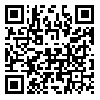Wed, Jan 28, 2026
[Archive]
Volume 35, Issue 1 (1-2021)
Med J Islam Repub Iran 2021 |
Back to browse issues page
Download citation:
BibTeX | RIS | EndNote | Medlars | ProCite | Reference Manager | RefWorks
Send citation to:



BibTeX | RIS | EndNote | Medlars | ProCite | Reference Manager | RefWorks
Send citation to:
Subhas N, Mukhtar F, Munawar K. Adapting cognitive-behavioral therapy for a Malaysian muslim. Med J Islam Repub Iran 2021; 35 (1) :213-223
URL: http://mjiri.iums.ac.ir/article-1-6849-en.html
URL: http://mjiri.iums.ac.ir/article-1-6849-en.html
Department of Psychiatry and Mental Health, Hospital Tengku Ampuan Rahimah, Ministry of Health, & Department of Psychiatry, Faculty of Medicine and Health Sciences, Universiti Putra Malaysia, Malaysia , nats085@yahoo.com
Abstract: (3856 Views)
Background: Over the years, cognitive-behavioural therapy (CBT) has gained momentum because of its robust evidence in the treatment of several disorders. However, there is an issue of religious and cultural appropriateness as CBT principles are based on Western conceptualization. This single‐case study (N = 1) implements a culturally and religiously adapted CBT on a 34‐year‐old male with panic disorder with agoraphobia in Malaysia. The client had symptoms comprising various episodes of sudden onset of breathlessness, accelerated heart rate, and fear of dying for the last 14 years. The CBT was culturally and religiously adapted based on (1) A CBT manual in Bahasa Malaysia that was previously modified and adjusted according to the norms of the Malaysian society and (2) General guidelines in “Religious–Cultural Psychotherapy in the Management of Anxiety Patients” by Razali et al in 2002. The present modified CBT had 3 assessments formulation sessions and 12 intervention sessions.
Methods: The first 6 sessions were based on the behaviour component of CBT (ie, a relaxation technique using Islamic prayer, reciting verses from the Holy Quran, slow breathing exercise, body scan, and progressive muscular relaxation). However, sessions 7 to 12 were focused on cognitive restructuring and exercises, such as identification of negative automatic thoughts, cognitive distortions, dysfunctional thought records, vertical arrow technique, and the coping statement was practised through collaborative empiricism, while implementing Islamic and cultural elements. The focus of termination sessions was on interoceptive exposure, cognitive rehearsal, and in vivo situational exposure.
Results: Beck Anxiety Inventory (BAI) was administered at regular intervals. BAI scores revealed the effectiveness of adapting the intervention.
Methods: The first 6 sessions were based on the behaviour component of CBT (ie, a relaxation technique using Islamic prayer, reciting verses from the Holy Quran, slow breathing exercise, body scan, and progressive muscular relaxation). However, sessions 7 to 12 were focused on cognitive restructuring and exercises, such as identification of negative automatic thoughts, cognitive distortions, dysfunctional thought records, vertical arrow technique, and the coping statement was practised through collaborative empiricism, while implementing Islamic and cultural elements. The focus of termination sessions was on interoceptive exposure, cognitive rehearsal, and in vivo situational exposure.
Results: Beck Anxiety Inventory (BAI) was administered at regular intervals. BAI scores revealed the effectiveness of adapting the intervention.
Type of Study: Original Research |
Subject:
Psychiatry
Send email to the article author
| Rights and permissions | |
 |
This work is licensed under a Creative Commons Attribution-NonCommercial 4.0 International License. |








